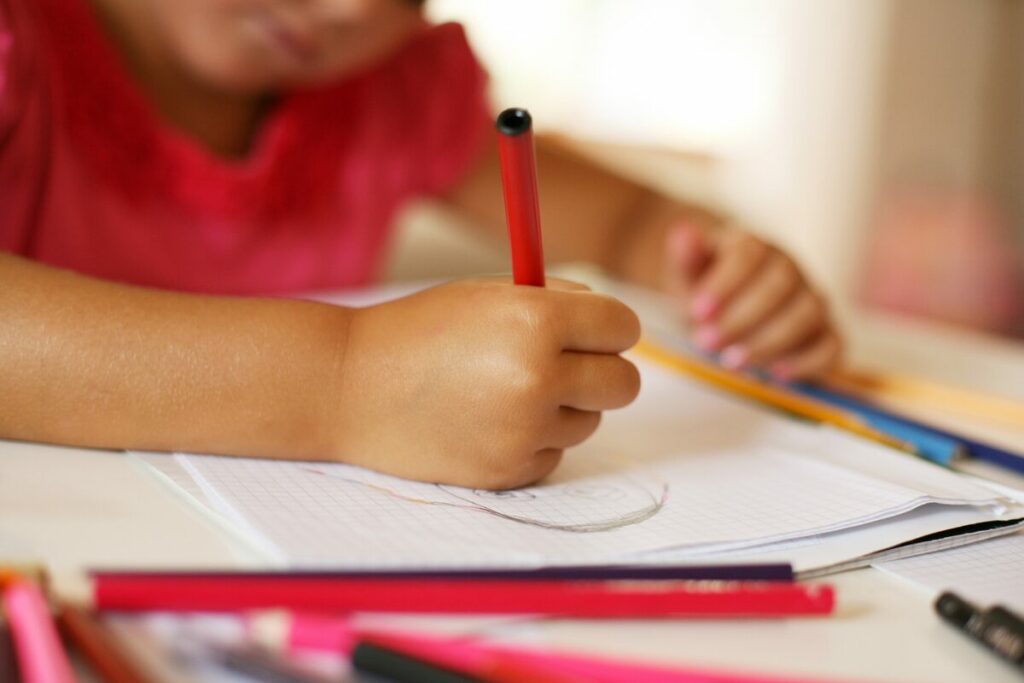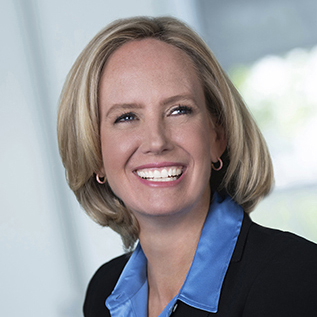A primary purpose of education is to broaden the horizons of our young people so they can see their purpose, and understand how the world works, what excites them, and what doesn’t.
Kelly Young, Founder and President, Education Reimagined
Another school year is beginning. Amid the sense of renewal, the pictures of glowing faces on social media, the bustle of new schedules, and the fresh smell of school supplies, there is, to me, also a sense of urgent yearning that fuels my intention in this work. How do we truly focus, as communities, on creating the fundamental conditions needed for learning, development and nurturing purpose in our young people?
With the start of the year, conversations are re-emerging about test scores, curriculum debates, and seat time—and now, how to restrict the usage of ChatGPT and AI in assignments. These conversations center on how schools create order, show success, operate smoothly, and secure funding—all things that matter deeply to them. Our focus instead needs to be on what matters to learners.
The AI example is a good one. Instead of restricting usage, and having students meet standards and requirements without it, how can we help them integrate ChatGPT and other tools ethically and strategically into their kits? ChatGPT specifically can help learners broaden their horizons, gather and then build on existing data and ideas, and test concepts—all of which can help advance their thinking and problem-solving, and take ideation to new heights.
In the wake of the challenges facing our society and growing matters of mental health, it is our responsibility as whole communities to guide young people in the development of agency, identity, belonging, and purpose. Those are the basics for staying curious, deepening a love of learning, and developing the resilience to work through hard challenges in the real world.
In the wake of the challenges facing our society, it is our responsibility as whole communities to guide young people in the development of agency, identity, belonging, and purpose.
Kelly Young, Founder and President, Education Reimagined
Rather than focusing on filling heads with knowledge and meeting requirements, let’s focus on nurturing the fundamentals that matter.
1. Valuing the fundamental uniqueness of every learner and creating a sense of belonging.
Learning science points to a key fact. When children approach learning with calm brains, they are better able to focus, explore, and experience a sense of flow. Creating this sense of calm fundamentally is about appreciating, respecting, and acknowledging what each learner brings to their experience every day—who they are, what their life is like at home, what their interests are, what they enjoy, what worries them.
Our partner learner-centered communities know this so well. Each has their own approach to igniting the relationships that are so core to this work. They build a lasting trust.
This effort to build relationships is foundational to everything that happens in a child’s learning experience. Many conventional schools bring social and emotional learning to life in a dedicated time slot—like 10 minutes per week—or an initiative for the school, with funding and policies surrounding it. Instead, all of our partner communities infuse this as a way of life in their environments.
Educators in some environments like Norris Academy in Mukwonago, Wisconsin, build these relationships with intentional tools like learner profiles, which are central to a deep process of personal connection and identity exploration. Others create a host of seemingly informal moments to connect with learners and their families.
2. Creating learning experiences that fundamentally matter to each learner.
When learners can immerse themselves in something interesting to them, they devour it. They don’t question it. They dive deep into all angles.
Many thinkers in this space refer to this as enlivening “vigor” in lieu of the rigid “rigor” in learning.
Educators in learner-centered communities know how to see, and more importantly, how to ignite this spark, and they help young people navigate and unpack the academic and life concepts, facts, and skills that surround it. There is great intentionality in choreographing this learning. A passion project often becomes a full-circle learning experience, in which reading, math, research, and experimentation are central to its success.
A simple question often becomes a whole project with various dimensions of learning. A third grader may be genuinely curious about why salt melts snow. Navigating the answer with an adult opens up worlds of science, chemistry and the elements, explorations of nature, understanding of arctic regions and cultures, and lots of slushy experimentation.
3. Making real-world experience fundamental.
Finding meaning, connection, and possibility in the world requires real-world experience.
Working in a print shop, harvesting vegetables on a farm, playing in maker spaces, and creating art in a studio space—and beyond—can offer a child perspective that cannot be experienced in the confines of one building. A primary purpose of education is to broaden the horizons of our young people so they can see their purpose, and understand how the world works, what excites them, and what doesn’t.
These opportunities also can defy the confines of a ZIP code. Raj Chetty uncovered and shared how learners in challenged and marginalized communities have less social capital (as measured by their social media followers) than those in wealthier communities. Exposing young people to learning beyond their communities enables the widening of the world, along with the closing of opportunity gaps.
Integrating real-world experience, project-based learning, and internships must be fundamental to public education. Real-world champions Big Picture Learning and The Met have mastered creating, codifying, and credentialing these experiences. But most of our partners center learning around what’s tangible and interesting outside of school buildings.
This is possible. What if we could bake these fundamentals into the DNA of a new public education system? With concerted effort to design a new public infrastructure to support learner-centered ecosystems, we can. As our team works with leaders across the country to create and spread alternative designs for public education, we see the true possibility of learner-centered education and community-based ecosystems to make these fundamental values the core of education.

